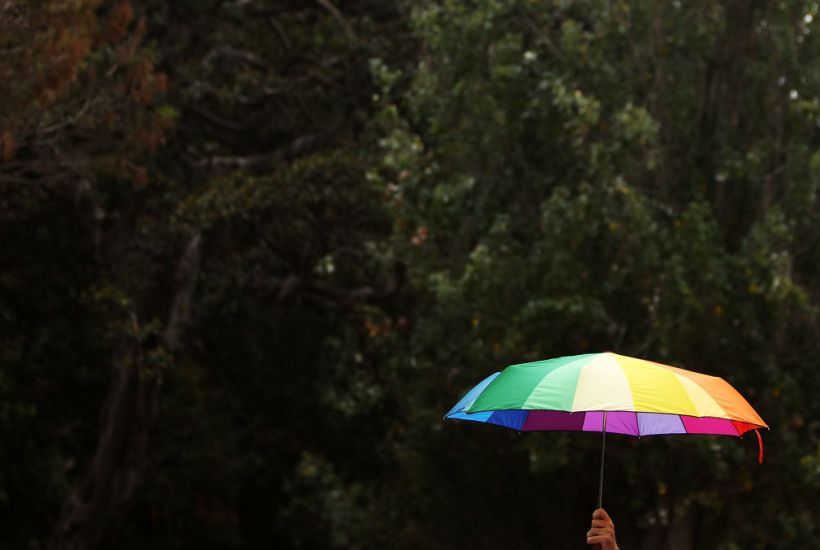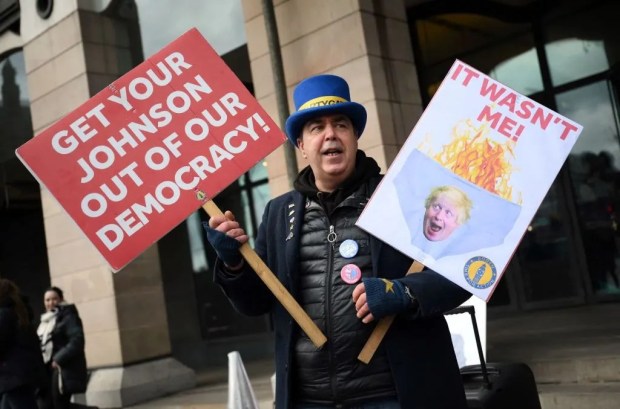It’s great that Britain’s high court has ruled that children can’t give informed consent to receive puberty blockers. I only wish that we had made that sort of progress here in Australia. But we haven’t — we’ve gone the other way.
Not only are we still handing out puberty blockers to children, we have also introduced ‘self-identification’ for legal sex status in multiple states. What’s more, there are serious attempts under way to introduce legislation that could be used to make it an offence to fail to affirm people’s chosen gender identities. This is happening under the banner of expanding hate speech protections and prohibiting conversion therapy.
I’m not writing this to pat Britain on the back. I’m writing to warn you. What happens in Australia may well affect the culture in the UK too. When it comes to the trans debate, what happens in one country can lead to the same thing happening in others.
The trouble began in earnest in Australia in 2019, when reforms similar to those proposed in the UK’s 2018 consultation over the Gender Recognition Act were introduced in multiple states of Australia, swiftly and without consultation.
Tasmania and Victoria both brought in self-identification for legal sex. Tasmania even allows no sex to be recorded at all on a child’s birth certificate. In Victoria, to legally change sex, you simply need to make a statutory declaration of what you ‘believe’ your sex to be. One of the few contexts where a self-identifying transwoman can be legally distinguished from a woman is in elite sport. For almost all other cases where exemptions are granted to discrimination law to legally exclude men (for instance, from being hired as attendants at a female-only pool), self-identifying trans women must be counted as women, not as men.
Worse still, a bill was introduced in Victoria in 2019 to extend hate speech provisions, making it the case that ‘gender’, ‘gender identity’, and ‘sex characteristics’ would all be attributes protected from vilification (currently such protections exist only for race and religion). This would mean ‘gender identities’ could not be subject to any conduct that could be classified as inciting hatred, serious contempt, revulsion or severe ridicule. The bill was sent to the Parliamentary Committee and it remains uncertain whether it will become law. If it does, humour used as a political tactic may then be treated as ‘severe ridicule’ and subject to a complaint to the Victorian Equal Opportunity and Human Rights Commission.
The most recent attempt at legislative change is perhaps the most audacious: a so-called ‘conversion practices’ bill was passed in Victoria last week (it exists already in a more limited form in Queensland and the Australian Capital Territory). The bill masquerades as a policy to outlaw attempts to suppress people’s sexual orientations. But the legislation adds ‘or gender identity’ whenever it mentions sexual orientation in the bill. Its provisions are so expansive that it makes it an offence for all but a narrow range of medical practitioners to refuse to support or affirm a person’s claimed gender identity.
The repercussions of this legislation could be vast: the bill establishes a commission to police offences. Those who fall foul of it face up to 10 years in prison and could be fined as much as $200,000 (£110,000).
Why does this all matter? Because it makes it incredibly difficult to talk to people who claim to be trans about the right course of action for them. There is a strong body of evidence that autistic people, gay people, and people with mental health problems can sometimes identify as trans. The bill will make it very difficult to help these people by exploring other approaches.
Another implication of the bill is that ‘trans widows’ — women whose husbands abandon their marriages to live as women — could be guilty of an offence if they don’t affirm their spouses in their new identities.
The situation in Victoria is untenable. The self-ID bill displaced sex as an important legal category and protected attribute — bang goes women-only spaces, services and provisions. All three bills stifle political discussion and debate. The conversion therapy bill puts vulnerable children at risk from the ‘affirmation-only’ policy for gender identity which will see them medicalised, whether that is ultimately the right path for them or not.
This does not only affect Victoria. What happens in one state of Australia is often closely followed by others, and what happens in Australia can affect the trans debate around the world. More than 250,000 people signed a petition last year calling for the UK government to ban conversion therapy. Boris Johnson announced that the government would complete a study on the issue. It is not at all far-fetched to think that the UK could, in the end, follow Australia’s dismal lead.
Got something to add? Join the discussion and comment below.
Get 10 issues for just $10
Subscribe to The Spectator Australia today for the next 10 magazine issues, plus full online access, for just $10.
Holly Lawford-Smith is an Associate Professor in Political Philosophy at the University of Melbourne




















Comments
Don't miss out
Join the conversation with other Spectator Australia readers. Subscribe to leave a comment.
SUBSCRIBEAlready a subscriber? Log in